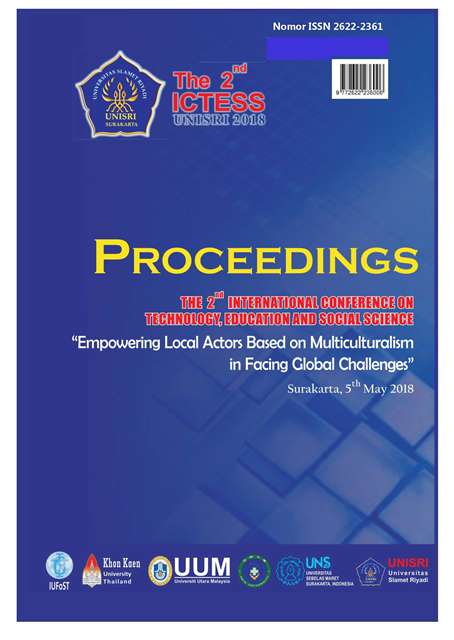Elongation, Cooking Loss and Acceptance of Wet Noodles Substituted with Fennel Leaves Flour
Abstrak
Fennel leaves are composed of various components that are beneficial to health andprovide a distinctive flavor. The effort to increase fennel leaf consumption is
through the processing of fennel leaf flour as an intermediate product which can be
substituted in noodle product. The purpose of the study was to evaluate the
elongation, cooking loss and acceptance of wet noodles substituted fennel leaf
flour. The study used a complete randomized design, with 4 fennel leaf flour
substitution treatments, were 0%, 2.5%, 5% and 7.5%. Wet noodles were analyzed
for elongation, cooking loss and acceptance. The elongation and the cooking loss
data were analyzed using One-Way ANOVA at a level of 0.05, while the
acceptance data were analyzed using non-parametric Kruskal-Wallis followed by
Duncan test. The results indicated that there was the influence of fennel leaves
flour substitution on tensile strength, strain, cooking loss and acceptance of wet
noodles. The highest tensile strength was shown by wet noodle substituted 2.5%
fennel leaf flour, was 0.18N. The biggest strain was revealed by wet noodle
substituted with 0% fennel leaf flour, was 58.65%. The lowest cooking loss of wet
noodle was given by the substitution of 2.5%, was 0.66%. The lowest cooking loss
of wet noodle was given by the substitution of 2.5%, was 0.66%. The highest
acceptance was displayed by wet noodles substituted 0% fennel leaf flour, followed
by 2.5% substitution.
Keywords: Acceptance, cooking loss, elongation, fennel leaves, noodles.

